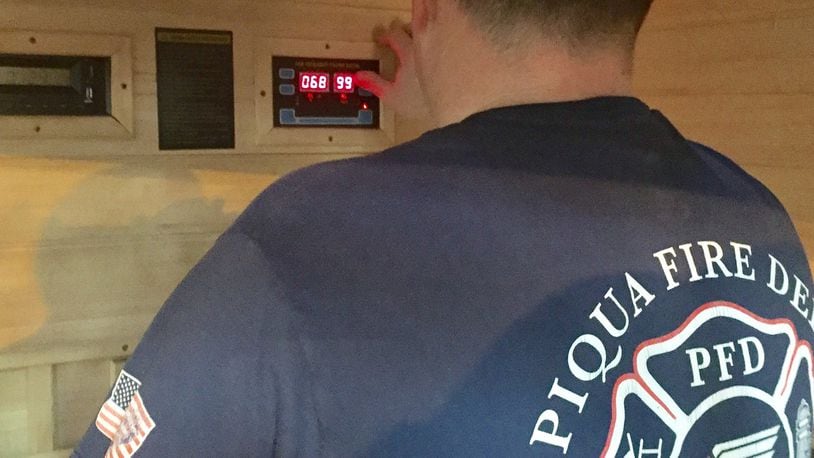Changes have been made, and more are coming in his department and others around the region.
TRENDING: Year in review: 12 crime stories that shocked the Dayton area in 2017
Measures taken or being pursued include immediate decontamination with body wipes while still at the scene of a fire. Ashworth said on-site decontamination also includes any police who might have been exposed to smoke outside a burning building.
In addition, Ashworth said:
- Each firefighter is issued a second set of firefighting gear to change into so they are not wearing “dirty” gear.
- All “contaminated” gear is washed after a fire.
- No fire gear is permitted in any part of a fire house other than designated “dirty” areas.
- Every firefighter is to completely wash after a fire.
- All firefighting hoods will be replaced with a hood specifically designed to help minimize the absorption of chemicals into the body. A $10,000 grant was received for this project from the Ohio Bureau of Workers Compensation.
READ MORE: Deadly Miami Twp. police shooting began with call about man’s welfare
Each fire station in Huber Heights also will be outfitted with a sauna.
“It has been proven that sweating out the contaminates is very beneficial,” Ashworth said.
Firefighters in Piqua have had access to a sauna at the city’s lone fire station for several months, said Fire Chief Brett Pohlschneider.
The Piqua Fire Department has followed the best recommended practices from the Firefighter Cancer Prevention Network, he said.
“This is a work in progress for all fire agencies. I can say we have made great strides in cancer prevention/awareness for our staff,” Pohlschneider said.
Among steps taken by Piqua firefighters are removal of as much fire byproduct from gear and skin as soon as possible at the scene. Baby wipes or an equivalent are used to remove soot from skin. Fire gear is brushed off or rinsed at the scene and then cleaned at the station, while the turnout gear is placed in the washer/extractor for cleaning and the backup set placed in service.
Firefighters also take a shower as hot as can be tolerated for 15-20 minutes and wash with a non-lotion soap to flush fine fire product particulates from the pores of the skin, Pohlschneider said. They re-hydrate and enter the dry sauna within 24 hours of smoke exposure to further help in flushing material from the body.
The dry sauna unit was donated to the fire department earlier this year by supporter Sammye Harrison of Barclay’s Clothiers in Piqua.
DOWNLOAD OUR FREE MOBILE APPS FOR LATEST BREAKING NEWS
Tipp City Fire Chief Steve Kessler discussed safety concerns for his volunteer firefighting force during the annual city budget review this fall.
His focus was money requested for the second year to complete replacing all firefighter helmets. The chief included $4,875 in the 2017 budget to begin the replacement program and requested the same amount in 2018 to finish the job.
“There is quite a push being put on in fire service now about the amount of cancer that firefighters are catching. Firefighters are about twice as apt to have cancer as a normal person,” he said. “So, there is a big push now to improve our safety as far as cleaning up after fires.”
Kessler said his crews conduct decontamination following every fire that includes cleaning themselves down with alcohol wipes, cleaning all gear and decontaminating trucks
Although most firefighters would prefer to keep their precautions are being taken, Kessler said.
“Most of our firemen prefer to have dirty helmets. It looks like they do more, but it isn’t safe,” he said.
About the Author
